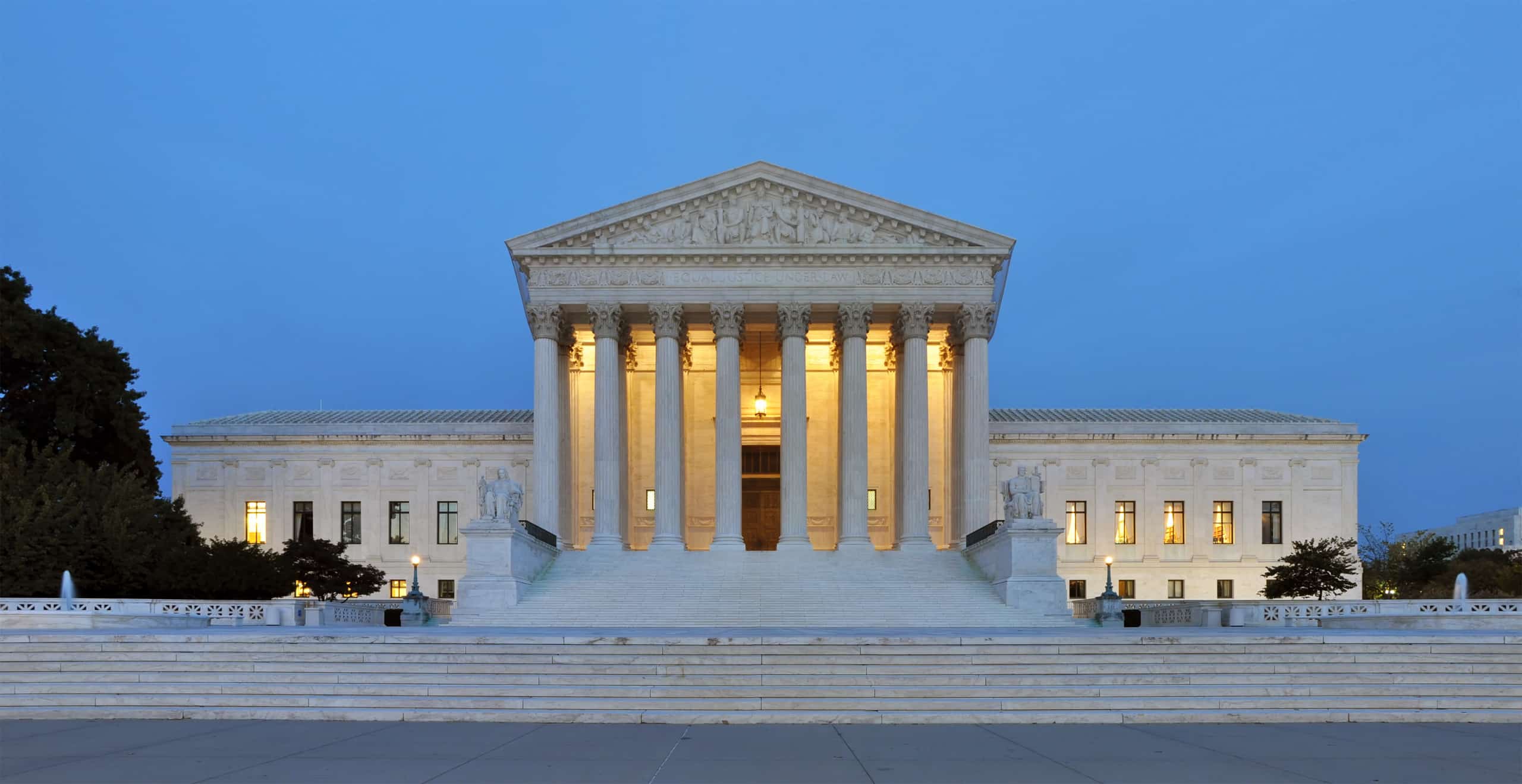Supreme Court Decides Fuld v. PLO
June 20, 2025
The Supreme Court today unanimously reversed the Second Circuit in Fuld v. Palestine Liberation Organization, holding that the personal jurisdiction provisions of the Promoting Security and Justice for Victims of Terrorism Act (PSJVTA) do not violate the Fifth Amendment’s Due Process Clause. Chief Justice Roberts wrote the opinion, which was joined by Justices Alito, Sotomayor, Kagan, Kavanaugh, Barrett, and Jackson. Justice Thomas wrote a separate concurrence, which Justice Gorsuch joined in part.
The Court’s Decision
The Court held that personal jurisdiction analysis under the Fifth Amendment does differ from that under the Fourteenth Amendment. As Chief Justice Roberts wrote, “the Due Process Clause of the Fifth Amendment necessarily permits a more flexible jurisdictional inquiry commensurate with the Federal Government’s broader sovereign authority.”
The Court declined, however, to decide what the outer limits of Fifth Amendment personal jurisdiction might be. Instead the Court held that the PSJVTA did not surpass those limits because it tied personal jurisdiction to conduct involving the United States and implicating the political branches’ considered judgment of sensitive foreign policy matters. Personal jurisdiction is predicated, in other words, upon conduct bearing a “meaningful relationship to the United States.” Although the Court reserved the question of whether the Fifth Amendment analysis includes a reasonableness inquiry, it noted that any such reasonableness inquiry would be satisfied in this case.
Even though many commentators and teachers (myself included) had expected this case to address jurisdiction-by-consent, answering some of the questions left open by the Court’s last personal jurisdiction decision in Mallory v. Norfolk Southern Railway (2023), the Court declined to do so. “Since we hold that the statute ties the assertion of jurisdiction to predicate conduct that in and of itself bears a meaningful relationship to the United States,” the Court explained, “we need not further consider the matter through the lens of consent.”
An Initial Assessment
Chief Justice Roberts’ opinion is arguably the least disruptive way of salvaging the PSJVTA–which all the Justices seemed interested in doing at oral argument. And it gives a little something to all the Justices who signed onto the decision: It incorporates Justice Kavanaugh’s concerns about protecting the political branches’ foreign policy judgments (including an invocation of Youngstown Steel). It reserved the possibility of a reasonableness check in keeping with Justice Sotomayor’s longstanding views on personal jurisdiction. It emphasized the “relationship” between the forum, the defendant, and the cause of action over any talismanic language drawn from past decisions, which reminds me of Justice Kagan’s approach in Ford Motor Co. v. Montana Eighth Judicial District Court (2021). And it did not foreclose considering the originalist argument at a subsequent date, which might have appeased Justice Barrett.
But even though the Court purported not to provide a test for personal jurisdiction analysis under the Fifth Amendment, what it did do bears a striking resemblance to International Shoe Co. v. State of Washington (1945), shorn of all the subsequent caselaw scaffolding built on top of that original standard. The Supreme Court held that there is a meaningful nexus between the cause of action in these cases, the defendant’s conduct that triggers personal jurisdiction, and the United States. That is the core idea of International Shoe‘s “minimum contacts” test, just without all the “purposeful availment” and “arising out of/related to” language and distinction between general and specific jurisdiction that got added later. And the exercise of jurisdiction under the facts of this case would not be so unreasonable as to offend traditional notions of fair play and substantial justice. I tend to think that is the right answer–just as I tend to think it would be the right answer under the Fourteenth Amendment as well.
Justice Thomas’s Concurrence
Justice Thomas would have answered some of the questions reserved by Chief Justice Roberts’ opinion and decided the case on that basis. First, he would have held that the PLO and Palestinian Authority (PA) do not have due process rights as foreign non-sovereign governmental entities.
Second, joined by Justice Gorsuch, he would have held that the Fifth Amendment’s Due Process Clause, as a matter of original understanding, imposes no limits on Congress’s ability to legislate personal jurisdiction. I am relieved that this view only garnered two votes, despite taking up much of the air time at oral argument. As Chief Justice Roberts wrote, “The Government cautions that the [originalist] theory is ‘not easily confirmed as a historical matter,’ and points to ‘strong policy reasons . . . against reaching’ it.” I plan to explore in future posts some of the caselaw foundations for this historical argument, which have either been misconstrued and exaggerated. There is no compelling historical basis for concluding that the founding generation thought Congress’s ability to legislate personal jurisdiction would be boundless.
